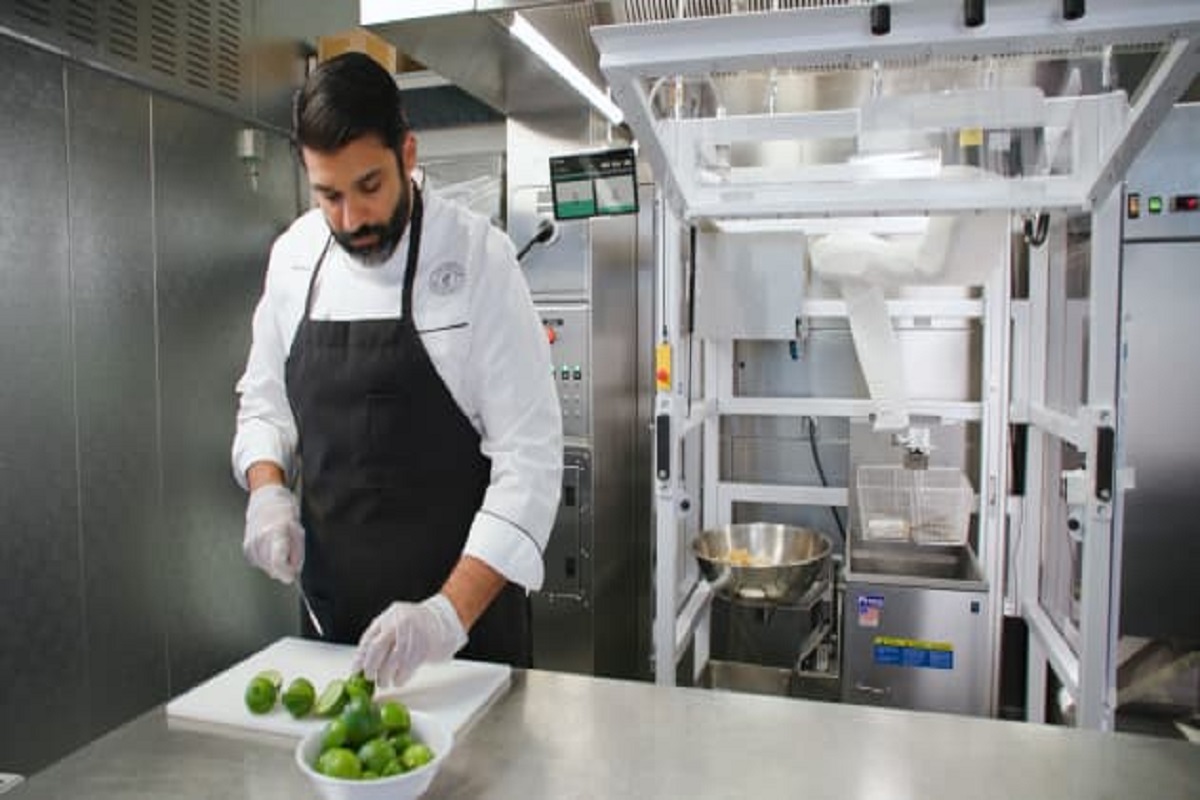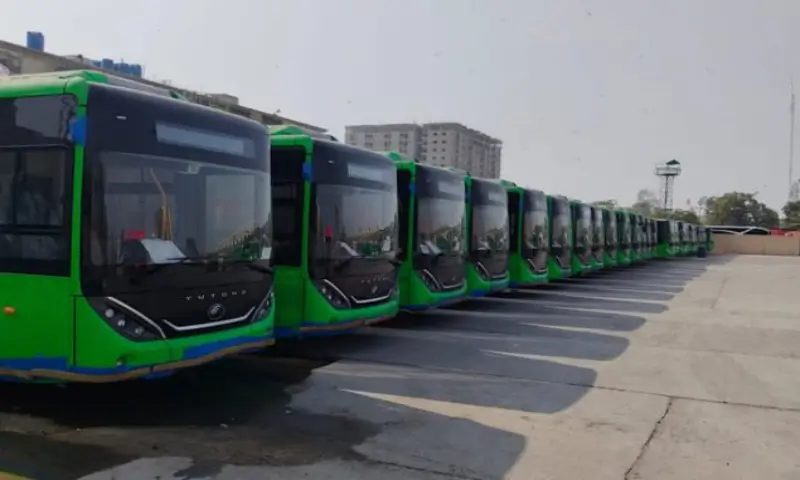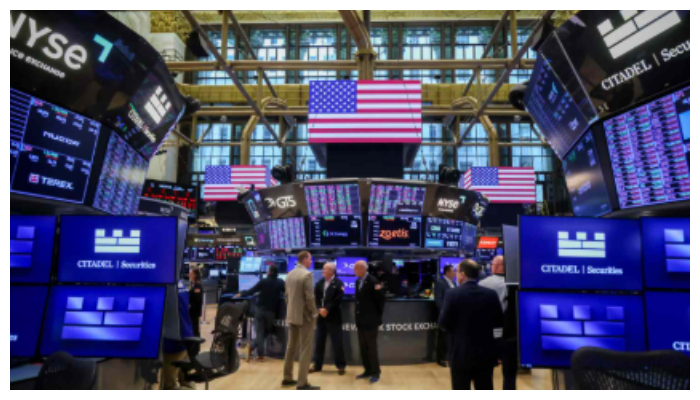- Chipotle’s new venture fund aims to ease the margin-squeezing constraints of the restaurant.
- The company has seen double-digit systemwide sales growth between 2017 and 2020.
- Chipotle’s stock is down 20% despite expectations of $9.04 per share in quarterly earnings.
The long lunchtime lines at Chipotle Mexican Grill are a fitting metaphor for the company’s commitment to innovation: you may have to wait for results, but Chipotle is supporting technologies from around the world that will transform the way restaurants run and customers think about food.
The company’s sentiment isn’t new. Inspired by Uber, Chipotle went digital in 2016 with its app and immediately developed room in each restaurant so personnel wouldn’t have to pick between serving customers in front of them and those who ordered digitally. In April, Chipotle created Cultivate Next, a $50 million venture fund to ease the margin-squeezing constraints of the restaurant business, tackling labour shortages, growing food costs, and attracting customers to eat in their stores for longer.
“We’re thinking about how to expand and scale the company through several lenses,” said Garner, emphasising that the fund allows Chipotle to go beyond adjusting to technological change to generating it. Restaurant expansion, increasing and scaling our internet business, and influencing how consumers think about where their food comes from.
Chipotle’s new venture fund might attract investors as the food industry faces challenges. Analysts will seek for examples of Garner’s first two points when Chipotle publishes second quarter results on July 26.
Morningstar reports that Chipotle has seen double-digit systemwide sales growth between 2017 and 2020. It’s not immune to the market downturn. Chipotle’s stock is down more than 20% year-to-date despite average projections of $2.24 billion in second-quarter revenue and $9.04 per share in quarterly earnings.
Morningstar’s Sean Dunlop says margins are the problem.
[embedpost slug=”at-first-for-the-brand-chipotle-employees-are-seeking-union-representation/”]
While Chipotle and the restaurant sector have seen a little weakening of comparable store sales growth, rising food, labour, and utility expenses combined with a trend of people going out of their homes less “is compressing Chipotle’s P&L,” Dunlop said. The strain will likely remain until 2024. Owner-operated chains like Chipotle and Starbucks may be doing worse since “they bear all those below-the-line expenditures,” he said.
Unionization might hurt Chipotle’s shares. Chipotle Mexican Grill in Augusta, Maine, filed a petition for a union election in early June, the first of the chain’s restaurants to join the current organising campaign across the U.S.
Self-driving delivery robots sparked innovation.
Chipotle wants to invest in early-stage companies producing innovative technology. Chipotle isn’t seeking for a precise ROI over a specific timeframe, unlike VC firms.
Garner: “Success is complex” It’s a chance to improve our operating business, which could be higher than our financial returns on capital.
Last year, Chipotle invested in Nuro, a SoftBank-backed firm that employs self-driving technology to carry groceries.
“We saw traction there in terms of synergies of culture, ideas, and innovation,” Garner told the Silicon Valley-themed Sand Hill Road podcast in May. Garner said Chipotle’s senior team was given several concepts but had no structured funnel to sift through supplier or partner options.
Record venture investment in restaurant technology, comprising hardware and software for management, bookings, staffing, mobile payments, and inventory management, topped $4 billion in 2021 and is on track to beat that this year. Hundreds of firms are interested in Chipotle’s seed to series B investment.
Garner said Chipotle will unveil its initial picks soon. Chipotle’s money will follow industry pain points, say industry watchers.
Eric Symon, vice president of Panasonic System Solutions Company of North America’s Enterprise Process Innovation Center, said many companies are investing to modernise and improve customer experiences and reduce labour costs after the epidemic.
Panasonic’s temperature-controlled smart food lockers deter take-out theft and order mix-ups, which tie up personnel. He sees demand for AI software to help restaurant management foresee busy times so they can properly staff.
Chipotle has invested in an AI-powered labour management technology to identify more effective restaurant staffing. AI-based training helps restaurant workers advance to management.
Chipotle wants to develop innovations like Chippy, a robot that makes tortilla chips and saves time and labour.
“We wanted to reduce the monotony of cooking chip basket after chip basket.” Chippy will be piloted at one Chipotle location later this year, Garner said. It frees up time for culinary experimentation and feeding guests.
Chipotle hopes to change the world’s food systems via its startup fund, Chippy.
“Environmental opportunities for how food is sourced and served are significant areas for technology to be expedited and enabled,” Garner added, citing environmentally minded farming approaches from Europe. “Guests want to know where their food comes from and feel good about shopping”
Investing in sustainable farming practises will give quick service restaurant brands more affordable ingredients, a guaranteed supply, and the chance to offer customers something unique vs. competitors, said Sanjeev Krishnan, chief investment officer at S2G Ventures, an eight-year-old venture fund supporting sustainable and healthy food systems.
These fast food restaurants can provide variation to our dull food system, Krishnan said. Just 15 crop species produce 90% of the world’s food energy, with rice, maize, and wheat providing two-thirds.
Chipotle, McDonald’s, Burger King, and Dunkin have all lately tested burger and sausage replacements. PitchBook Data analyses venture funding in a newish category: 3D bioprinting, which involves printing living cells, growth hormones, and other biomaterials to make cultured meat. Last year, 3D food-printer businesses raised $185.7 million, it claimed.
Dunlop compares Chipotle’s investment in high-risk emerging technology to other companies’ R&D costs.
Garner remarked, “Nothing is off-limits.” “[CEO Brian Niccol] has brought to our culture a sense of pride and humility. We’re pleased of what we’ve done, like plant-based chorizo, but we welcome new ideas.
[embedpost slug=”fed-says-american-banks-can-comfortably-endure-a-catastrophic-slump/”]





















